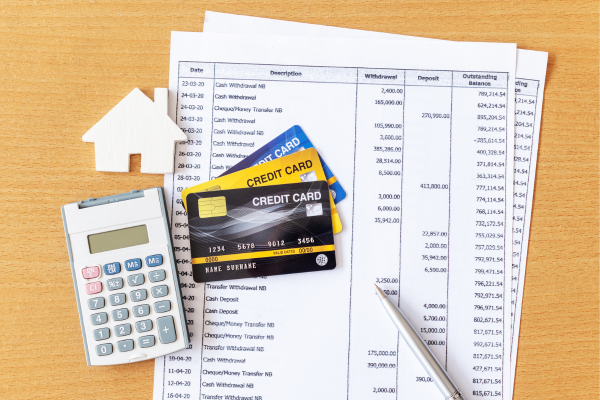In a recent article, we introduced the differences between secured and unsecured loans.
A secured loan is one that is backed by an asset which serves as collateral, similar to a housing loan. In contrast, unsecured credit is not backed by any asset, and intrinsically poses a greater credit risk to the lender.
To compensate lenders for this risk, borrowers of unsecured credit such as credit card debt are often subject to relatively higher interest rates on these loans. In today’s article, we wish to introduce some of the safeguards in place for borrowers to maximise their credit while mitigating risk.
Borrowing Limit on Unsecured Credit
In order to prevent a situation where an individual takes on too much debt, the Monetary Authority of Singapore has implemented limits on the aggregate amount of unsecured credit a borrower can receive across all financial institutions. Since 1 June 2019, this has been reduced from 18 times one’s monthly income to 12 times one’s monthly income, a significant decrease to discourage long-term reliance on unsecured credit.

Aggregate outstanding debt refers to the total interest-bearing debt of a borrower across all financial institutions. This includes unpaid credit card charges or any outstanding late payment of an instalment plan. You can apply for a copy of your credit report online at the Credit Bureau for a summary of your aggregate unsecured balances.
Furthermore, if your total unsecured debt exceeds this borrowing limit for 3 consecutive months, you will be restricted from applying for new credit cards or any form of unsecured facility. You will also be unable to draw down on any unsecured facility or increase your credit limit. The rationale for having this 3-month buffer is to offer a sufficient time buffer for borrowers to make their payments before suspension of their unsecured credit facilities.
Financial institutions will only be allowed to reinstate a borrower’s credit facilities if the borrower reduces their debt below the prevailing limit, or if the institution has conducted updated credit bureau and income checks on the borrower.
It is important that you update your bank or credit provider of your latest income to avoid any disruption in your usage of your credit facilities.
Disclosure Statements to Borrowers
Banks are obligated to notify and highlight the severity of your debt accumulation if left unpaid. The credit card statements at the end of the month would include information pertaining to the outstanding balance and the time required to pay off all outstanding fees plus interest if only the minimum sum is paid each month.
The bank is also required to provide information on the total debt that will be accrued at the end of the next 6 months if payment is not made by then.

To help with credit card debts, the Association of Banks in Singapore (ABS) offers a Debt Consolidation Plan (DCP) which is a refinancing program that allows the credit card holder to consolidate all unsecured credit facilities across financial institutions with 1 financial institution. The repayment can be spread out over 10 years at a lower interest rate.
Credit Bureau Checks
The creditworthiness of an individual indicates how much you should be allowed to borrow. Banks are obligated to conduct credit bureau and income checks on you if:
- They receive any information that casts doubt on a borrower’s creditworthiness (e.g., from a credit counsellor or a family member)
- Before granting a new credit card or unsecured credit facility
- Before granting an increase in credit limit
Banks may follow up with any informant providing information that causes them to doubt a borrower’s creditworthiness and will keep their identity confidential upon request.
Banks are also required to adopt a prudent approach to managing their customer’s credit. In a situation where the borrower’s financial situation has worsened from the time that the line of credit had been offered, the bank must conduct the relevant checks. In most cases, this may lead to a reduction of the borrower’s credit limit.
Where the borrower’s income has decreased, the banks must not extend any credit until their outstanding credit amount falls below the regulatory credit limit of 12 times their monthly income.
Managing your credit
Credit cards are a form of short-term loans and are least beneficial if they are treated like an access to long-term cash. They can be a useful tool if used within the confines of one’s financial capacity but can also be extremely detrimental if late charges and unpaid balances are allowed to snowball.
If you have difficulty managing your expenses with a credit card, we recommend opting for a debit card instead, which will draw down on available funds within your account. We also recommend carefully considering if having a credit card is a necessity. You may choose to view a copy of your credit report to have a better understanding of your creditworthiness, and how you can optimise your credit card usage.
While it is wise to prioritise paying off loans that carry higher interest rates first, we advise a prudent approach to borrowing from other sources to pay off existing loans. Instead, do a thorough comparison of interest charges and any hidden fees that you may incur over the tenure of the loan.
As always, good management of your personal expenses will posture you for excellence in managing your future property investments. Do reach out to any of our mortgage advisors at Redbrick Mortgage Advisory to learn more about how you can take advantage of both secured and unsecured credit to put you in a strong financial position!
Want to find the best mortgage rate in town? Check out our free comparison service to learn more!
Read more of our posts below!

